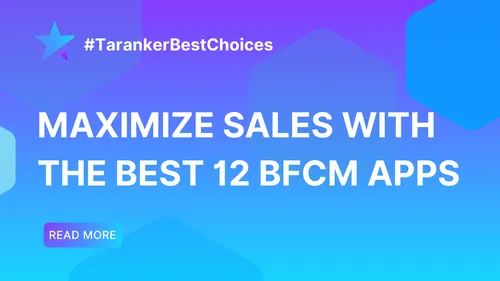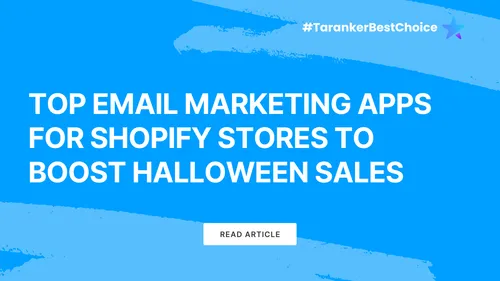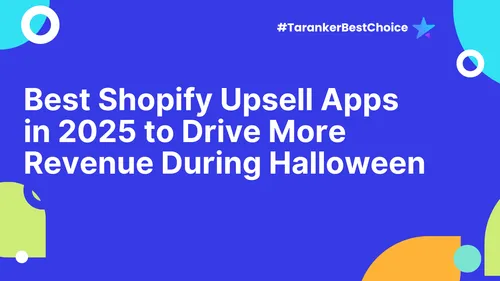Hey there! If you’re running an online store, you’ve probably heard the term customer-centric strategy thrown around. It might sound like just another business buzzword, but trust me—it’s a game-changer in the world of e-commerce. In this post, we’re going to unpack what it means, when you should use it, how to make it work for your business, and even dive into some real-life examples with hard data to back it up. By the end, you’ll see why putting your customers first isn’t just nice—it’s essential. Let’s get started!
What Is a Customer-Centric Strategy?
So, what’s the deal with customer-centric strategy? Simply put, it’s all about making your customers the heart of your business. Instead of focusing solely on pushing products or hitting sales targets, you prioritize understanding your customers’ needs, preferences, and behaviors. The goal? To create products, services, and experiences that make them feel valued and keep them coming back.
In e-commerce, this approach is a big deal. Online shopping is a crowded space—think of all the options customers have at their fingertips. With a quick click, they can compare prices, check reviews, or jump to a competitor. A customer-centric strategy helps you stand out by building loyalty and turning one-time buyers into lifelong fans. It’s less about the transaction and more about the relationship.

When to Apply a Customer-Centric Strategy in E-Commerce
Okay, so when should you roll out this strategy? The short answer is all the time. But let’s break it down into specific moments where it really shines in the e-commerce customer journey:
-
Product Development: Before you stock your virtual shelves, ask yourself, “Does this product solve a problem my customers have?” or “Is this something they actually want?” Listening to customer feedback early can save you from launching flops.
-
Marketing: Your ads, emails, and social media posts should feel like they’re speaking directly to your audience. Ditch the generic spam—focus on their pain points and desires instead.
-
Shopping Experience: A customer-centric site is easy to navigate, with clear product info, great images, and a checkout process that doesn’t make people want to pull their hair out.
-
Customer Service: This is your chance to shine. Fast responses, multiple support options (like chat or email), and personalized help can turn a frustrated shopper into a loyal one.
-
Post-Purchase Engagement: Don’t disappear after the sale. Follow up with useful tips, ask for feedback, or offer a discount for their next purchase. It shows you care beyond their wallet.
From the second someone lands on your site to long after they’ve hit “buy,” a customer-centric mindset keeps them engaged and happy.
How to Optimize Your Customer-Centric Strategy
Sold on the idea? Great! Now let’s talk about how to make it work. Here are five actionable steps to optimize your customer-centric strategy in e-commerce:
1. Collect and Analyze Customer Data
You can’t put customers first if you don’t know them. Use tools like surveys, feedback forms, and website analytics to figure out what they love, hate, and do on your site. Seeing a spike in cart abandonment? Maybe your checkout needs a tweak.
2. Personalize the Experience
Take that data and run with it. Offer tailored product recommendations, send emails that feel personal (think “Hey [Name], we thought you’d like this!”), and adjust your site based on their past behavior. Customers crave that “you get me” vibe—71% of them get frustrated when shopping feels impersonal, according to a Segment study.
3. Level Up Your Customer Service
Your support team is your secret weapon. Make sure they’re available on multiple channels—chat, email, social media—and can respond fast. Empower them to solve problems, even if it means going off-script. A little extra effort can turn a complaint into a win.
4. Build a Customer-Centric Culture
This isn’t just for your marketing crew—it’s a company-wide thing. Train everyone to think “customer first” and give them the freedom to make decisions that delight shoppers. When your whole team’s in on it, the results are magic.
5. Measure and Tweak
Launch your strategy, then keep tabs on it. Track metrics like Net Promoter Score (NPS) or customer reviews to see what’s working. If something’s off, tweak it. Customer-centricity is all about evolving with your audience.
Case Studies: Customer-Centric Success in E-Commerce
Need proof this works? Let’s check out two companies killing it with customer-centric strategies.
Amazon: The Personalization Powerhouse
Amazon’s practically the poster child for customer-centric e-commerce. They use massive amounts of data to personalize everything—those “Recommended for You” suggestions? Not random. They also nail fast shipping (hello, Prime!) and hassle-free returns, making shopping smooth as butter. It’s no surprise they’ve built a fiercely loyal customer base.
Zappos: Service That Wows
Zappos takes customer service to another level. Their reps are famous for going above and beyond—like sending free shoes overnight or even flowers to a customer having a rough day. They’re empowered to spend as long as it takes to make people happy, and it shows. Repeat buyers drive a huge chunk of their success.
Real-Life Data: Why This Matters
Still on the fence? Let’s hit you with some numbers:
-
Profit Boost: Deloitte found that customer-centric companies are 60% more profitable than those that aren’t focused on customers. That’s a serious payoff for putting shoppers first.
-
Business Priority: A report by Econsultancy revealed that 74% of businesses see customer centricity as critical to success. Yet many still lag in making it happen—don’t be one of them.
-
Rising Expectations: According to Salesforce, 73% of customers say one great experience raises their bar for every other company. If you’re not stepping up, your competitors will.

These stats scream one thing: focusing on customers isn’t just warm and fuzzy—it’s a smart move for your bottom line.
Wrapping It Up
In the wild world of e-commerce, where competition’s fierce and customers are spoiled for choice, a customer-centric strategy is your ace in the hole. It’s about knowing your audience, personalizing their journey, and consistently wowing them at every turn. The payoff? Happier customers, more sales, and a brand people rave about.
So, take a hard look at your business. Are you truly putting your customers first? If not, there’s no better time to start. Use the tips here, learn from giants like Amazon and Zappos, and watch your e-commerce game soar. Your customers—and your profits—will thank you.













